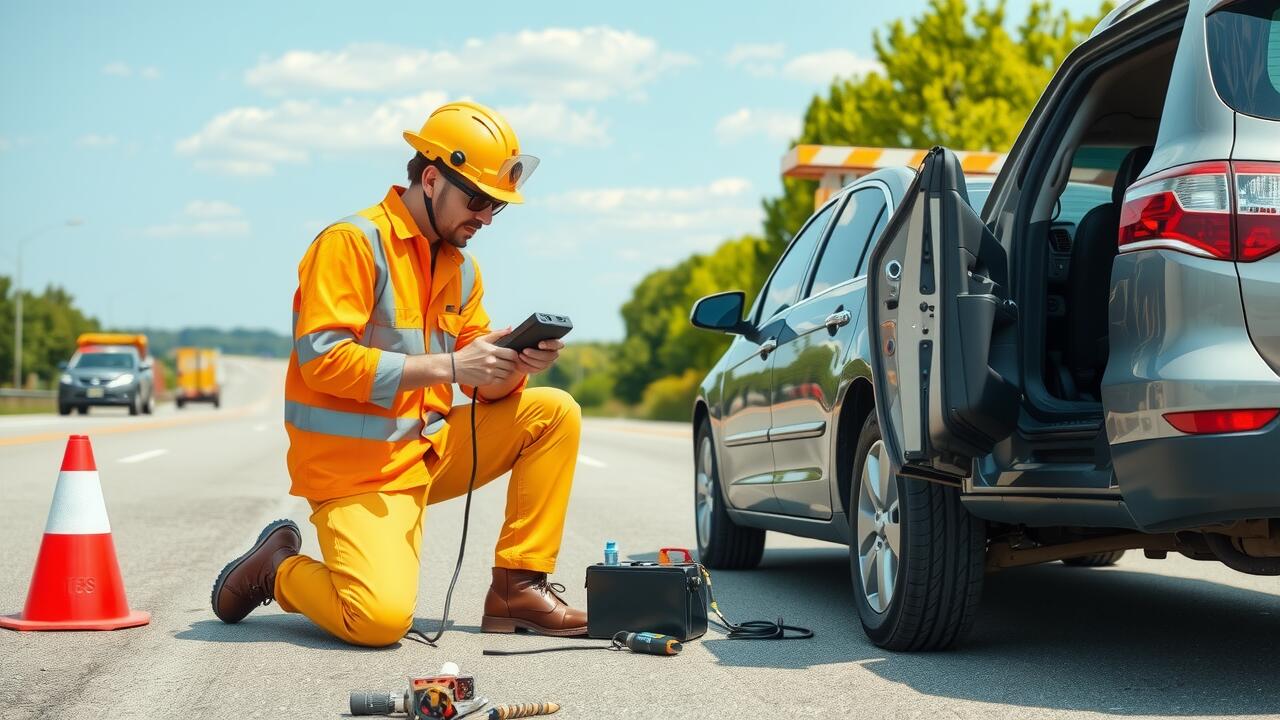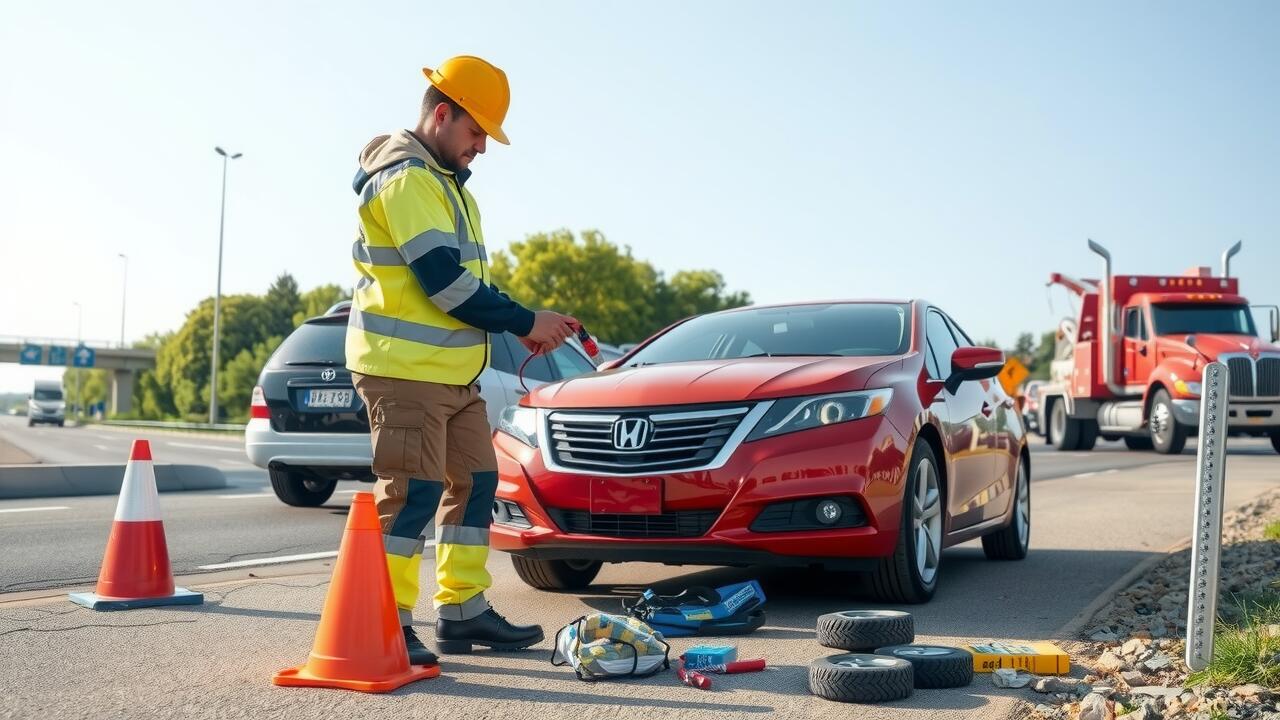
Additional Fees to Consider
Additional fees can significantly impact the overall cost of Emergency Roadside Assistance. Many providers impose service call fees that vary based on the time of day and the geographical location of the incident. It's also common for companies to charge mileage fees if the vehicle needs to be towed a considerable distance beyond a set limit. Understanding these charges upfront can help individuals budget for potential expenses while ensuring they are adequately covered in emergencies.
Some providers may also apply extra fees for specific services, such as after-hours assistance or service in remote areas. Consumers should read the terms and conditions carefully before selecting a roadside assistance plan. Knowledge of any additional fees helps avoid surprises during a stressful situation and promotes a smoother experience when calling for help on the road.
Service Call Fees and Mileage Charges
Emergency roadside assistance often includes service call fees that vary by provider. These fees can depend on the time of day and the urgency of the service. Some companies charge a flat rate, while others may have tiered pricing based on distance from their service facility. In some cases, membership plans can help to reduce or eliminate these fees.
Mileage charges add another layer to the overall cost of emergency roadside assistance. Many providers start charging a fee after a certain distance from the original breakdown location. Customers should review the specifics of their roadside assistance plan to understand how these charges apply. Being informed about both service call fees and mileage charges can help in making a more budget-conscious choice.
Cost of Common Roadside Services
Emergency Roadside Assistance services can vary significantly in cost depending on the type of assistance required. Towing services are often among the most expensive options available, typically ranging from $75 to $150 for a standard tow. Battery jump-starts and flat tire changes usually fall within a more moderate price range, often costing between $50 and $100. Lockout services can also vary, with charges generally hovering around $60 to $100.
Understanding the specific services provided under Emergency Roadside Assistance is crucial when evaluating costs. Many providers include a variety of offerings such as fuel delivery, tire changes, and winching services, which can influence pricing. Additionally, some companies may charge extra for specialized equipment or services needed to address more complex situations. Familiarity with these potential costs can help you make informed decisions when choosing a roadside assistance plan.
Towing, Battery Jump-Starts, and Lockout Services
Towing services are essential for drivers who find themselves stranded due to vehicle breakdowns or accidents. The cost of towing can vary significantly based on distance and location. Standard rates often cover a certain number of miles, with additional charges applied for longer distances. Many people rely on Emergency Roadside Assistance plans to mitigate these costs. These plans typically include a set number of towing miles, providing peace of mind during unexpected situations.
Battery jump-starts are another common service included in Emergency Roadside Assistance packages. This service is particularly valuable for those who have a dead battery and need a quick and efficient solution. The costs associated with jump-starts are generally lower than towing, but they can still vary by provider. Additionally, lockout services are crucial for individuals who accidentally lock their keys inside their vehicles. These services often come as part of a roadside assistance plan, saving drivers both time and money when faced with such inconveniences.
Insurance and Roadside Assistance
When considering the cost of emergency roadside assistance, it is essential to review your auto insurance policy. Many insurance providers offer roadside assistance as an add-on or included feature. This can significantly impact your overall expenses. If your policy includes this service, the fees for services like towing or fuel delivery may be covered or reimbursed, reducing out-of-pocket costs during a roadside emergency.
If you do not have roadside assistance through insurance, purchasing a separate membership plan may be a practical option. These plans often provide comprehensive coverage for various situations, such as flat tires or vehicle lockouts. Understanding the terms and conditions of your policy and any additional membership benefits is crucial. Emergency roadside assistance can be invaluable, especially in unexpected situations, and being aware of how your insurance interacts with these services can help you make informed decisions.
How Your Policy Affects Costs
The cost of emergency roadside assistance can vary significantly depending on the specifics of your insurance policy. Many auto insurance providers offer roadside assistance as an add-on to their standard coverage, which may increase your premium. Some policies include this service at no extra cost, while others may have limits on the number of times you can utilize it within a year or specific types of services that are covered.
When evaluating your policy, it is essential to read the fine print regarding emergency roadside assistance. Certain plans may impose a deductible for service calls or charge additional fees for towing beyond a specified mileage. Understanding your coverage can help you make informed decisions about whether to add roadside assistance or rely on existing services through your insurance provider.
FAQS
What is emergency roadside assistance?
Emergency roadside assistance is a service that provides help to drivers who experience vehicle issues, such as breakdowns, flat tires, or running out of fuel. This service typically includes towing, battery jump-starts, lockout assistance, and more.
How much does emergency roadside assistance typically cost?
The cost of emergency roadside assistance can vary widely, typically ranging from $50 to $250, depending on the service provider, the type of assistance needed, and any additional fees that may apply.
Are there any additional fees associated with roadside assistance?
Yes, additional fees may include service call fees, mileage charges, and costs for specialized services beyond standard offerings. It's important to review the specifics of your plan or provider for details.
Does my car insurance cover roadside assistance?
Many car insurance policies offer coverage for roadside assistance as part of their services. However, coverage can vary by policy, so it's best to check with your insurance provider to see what is included.
How can I reduce the cost of emergency roadside assistance?
To reduce costs, consider bundling roadside assistance with your car insurance, shopping around for plans that offer competitive pricing, or looking into membership programs that include roadside services, such as AAA.
